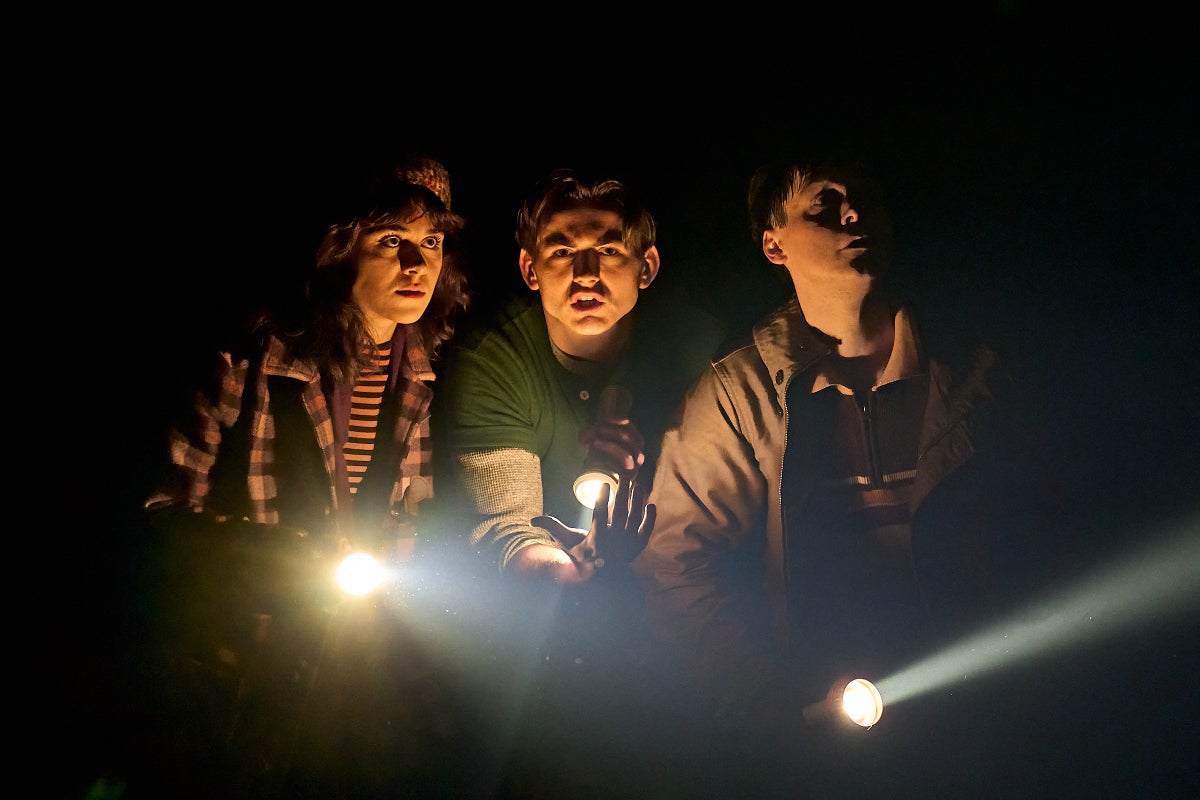
With an opening scene that parks a hulking great Second World War battleship on stage, Stranger Things: The First Shadow wants to make one thing clear. This isn’t a quiet, quaint, self-consciously theatrical little play. It’s a massive all-out event calculated to thrill fans of the award-winning Netflix series with explosions, thrills, and jumpscares galore – plus a little taste of what’s coming in 2024’s fifth season of the show. But with writer Jack Thorne (Harry Potter and the Cursed Child) and director Stephen Daldry (Billy Elliot) on board, it’s also got a surprising level of proper theatre cred for anyone who doesn’t come to it intricately versed in Stranger Things lore.
Technically, it’s a prequel to season five that expands on the backstory of season four’s emerging villain, Henry Creel – it’s co-written by Stranger Things writer Kate Trefry so it’s all fully canon. But you don’t really need to know that. We’re on familiar territory for anyone who’s watched a bit of Buffy the Vampire Slayer or Scooby-Doo: high school shenanigans colliding with supernatural chills as a gang of kids tries to make sense of creepy goings-on in their neighbourhood.
Teenage drama nut Joyce (winningly embodied by Isabella Pappas) just wants to stage a play. It’s 1959 Indiana, so the people are expecting the folksy, thigh-slapping joys of Oklahoma!, but she’s got other ideas, corralling her classmates into staging witchy drama Dark of the Moon. Soon, this play-within-a-play provides an uncanny mirror for the romance between shy, adopted outsider Patty (Ella Karuna Williams) and Henry (Louis McCartney), the new kid whose telepathic and telekinetic powers are a barely kept secret.
It’s kind of weird that no one else notices that electrical items explode whenever Henry experiences the slightest emotion – this twitching, nervy kid is clearly the common factor in all the haunted goings-on in Hawkins. But what Joyce and pals’ quest for answers lacks in suspense, it makes up for in breakneck pacing and deft storytelling.
Thorne and Trefry’s story is full of neatly observed touches (everyone falls about in horror when Joyce accidentally pulls out a copy of The Communist Manifesto), fun backstage shenanigans, and refreshingly uncliched characterisation. Except when it comes to Victor Creel (Michael Jibson), alas: Henry’s troubled war veteran Dad is meant to provide a dark emotional backdrop to this vision of suburbia, but he’s drawn with comic book two-dimensionality, all whining, twitching malevolence.
Louis McCartney as Henry Creel— (Manuel Harlan)
Still, subtlety isn’t really what they’re going for here. Where Harry Potter and the Cursed Child deals with the challenges of creating a stage spin-off to a much-loved franchise by leaning on a kind of stripped-back theatricality, Stranger Things goes for all-out movie-style maximalism. Giant projections set the scene in loving detail, every scene has tension-building musical underscoring, and you’re never far from a 4D cinema-style onslaught of descending foam, dry ice, or flares.
Some of the special effects are magical, some have a naff B-movie gruesomeness to them (spoiler alert: if pet death is a dealbreaker, this isn’t the show for you). But for Stranger Things fans, this periodic schlockiness is all part of the show’s knowingly retro charm – and its old-school, bombastic thrills should get brand new audiences flocking to the West End.
Phoenix Theatre, booking until 25 June 2024







